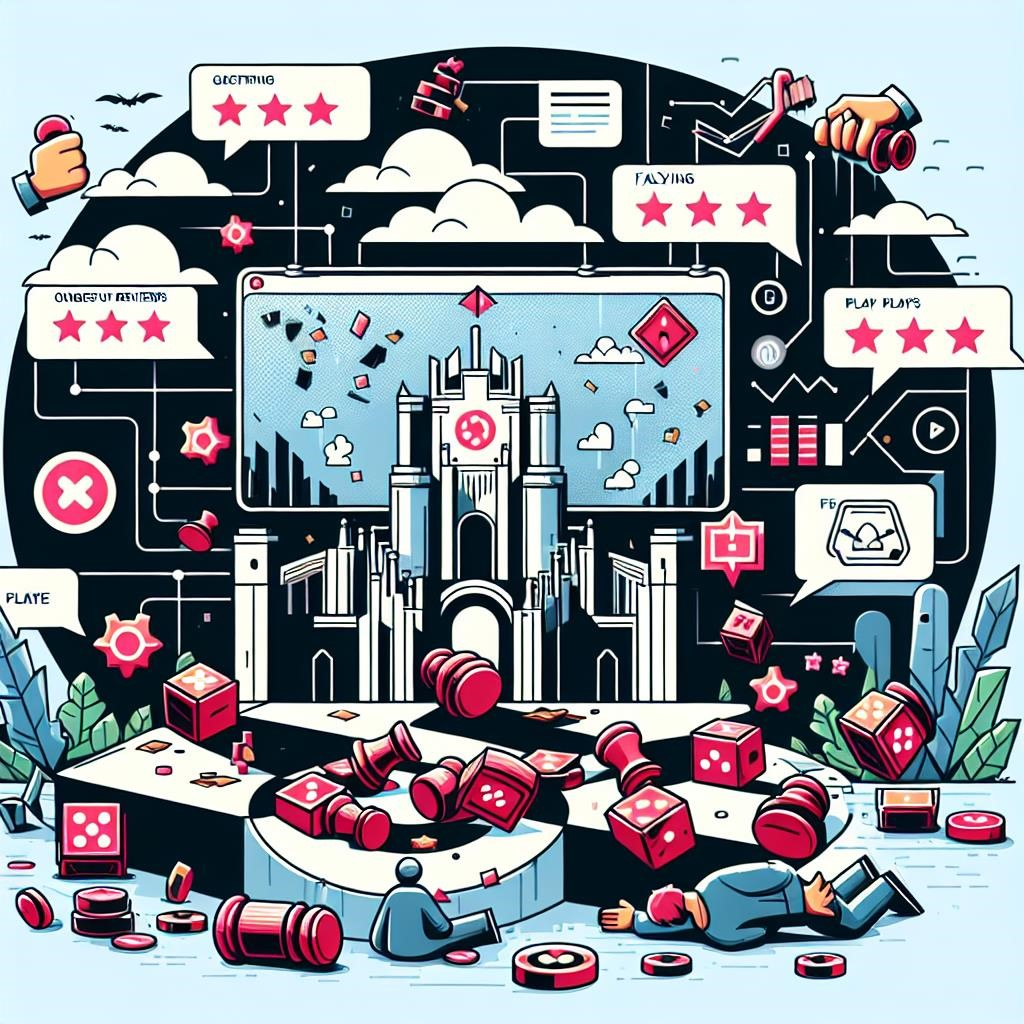The gaming industry is a vast and ever-evolving landscape where countless titles are released every year. However, not all games achieve the success they aim for. Here’s a look at some reasons why certain games fail:
1. Poor Game Design
One of the primary reasons games fail is due to poor design choices. This includes everything from unbalanced gameplay to unintuitive controls. If players find it difficult to engage with the game, they are likely to abandon it early on.
2. Technical Issues
Launch day bugs can ruin a game’s reputation. If a game is riddled with glitches, crashes, or performance issues, players will quickly lose interest. Quality assurance testing is crucial to ensuring a smooth launch.
3. Lack of Innovation
In an industry that thrives on creativity, games that fail to innovate often fall flat. Players are looking for new experiences, and if a game feels like a rehash of something that has come before, it may not capture their interest.
4. Inadequate Marketing
A great game can still fail if nobody knows about it. Effective marketing is essential for reaching potential players. Games that lack a solid marketing strategy often struggle to gain traction in a crowded market.
5. Misunderstanding the Target Audience
Knowing who the game is for is essential. If developers misjudge their target audience, they may create a game that doesn’t resonate with players, leading to poor sales and negative feedback.
6. Overhyped Expectations
Sometimes, games are hyped up beyond their actual quality. If the final product doesn’t meet the high expectations set by marketing or the community, players may feel disappointed and abandon the game.
7. Monetization Issues
Games that heavily focus on monetization, such as pay-to-win mechanics or intrusive microtransactions, often receive backlash from players. This can lead to a toxic community and ultimately result in the game’s failure.
8. Poor Storytelling
A compelling narrative can elevate a game, while a weak or incoherent story can turn players away. Players expect engaging stories, especially in genres that emphasize narrative.
9. Lack of Community Engagement
Games that fail to engage with their community often struggle to maintain player interest. Listening to player feedback and implementing changes can help keep the game relevant.
10. Competition
The gaming market is highly competitive. A new release can easily overshadow another game, especially if it offers superior gameplay, graphics, or storytelling. Developers must continuously strive to stand out in a crowded marketplace.
Top 10 PC Games
Now that we’ve explored why some games fail, let’s take a look at the top 10 PC games that have succeeded against the odds:
- The Witcher 3: Wild Hunt ⸺ A masterclass in storytelling and open-world design.
- Half-Life 2 ⎻ A groundbreaking title that set new standards for first-person shooters.
- Dark Souls ⸺ Known for its challenging gameplay and deep lore.
- DOOM Eternal ⸺ A fast-paced shooter that revitalizes the classic franchise.
- Stardew Valley ⸺ An indie gem that combines farming with RPG elements.
- Counter-Strike: Global Offensive ⸺ A competitive shooter that has stood the test of time.
- Portal 2 ⎻ A puzzle game that masterfully blends humor and brain-teasers.
- Cyberpunk 2077 ⎻ Despite a rocky launch, it has garnered a dedicated following.
- Red Dead Redemption 2 ⎻ Acclaimed for its storytelling and immersive open world.
- League of Legends ⸺ A staple in the esports scene, known for its strategic gameplay.
These games exemplify what can be achieved when developers focus on quality, innovation, and community engagement. They serve as a reminder of the potential for success in an industry filled with challenges.
